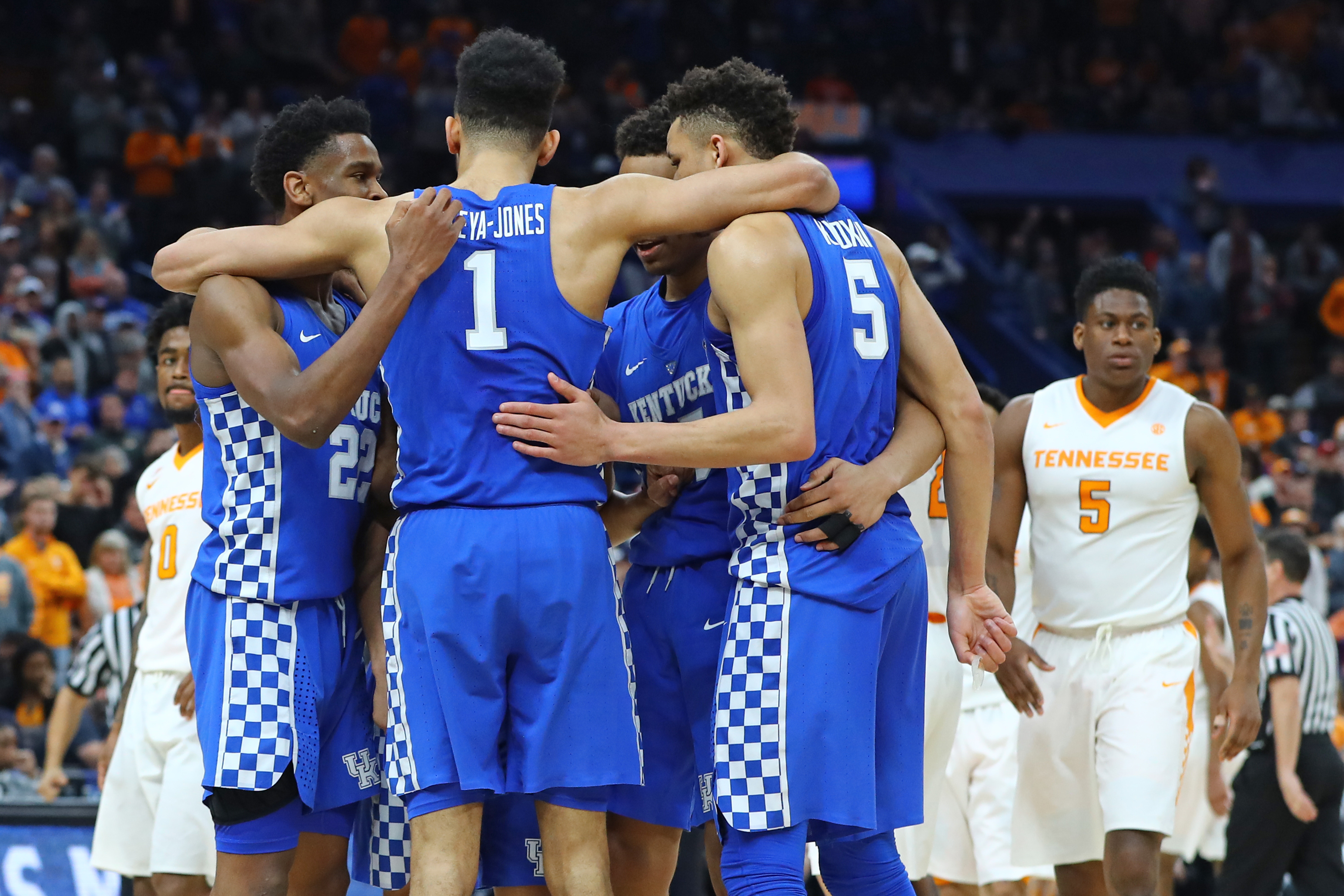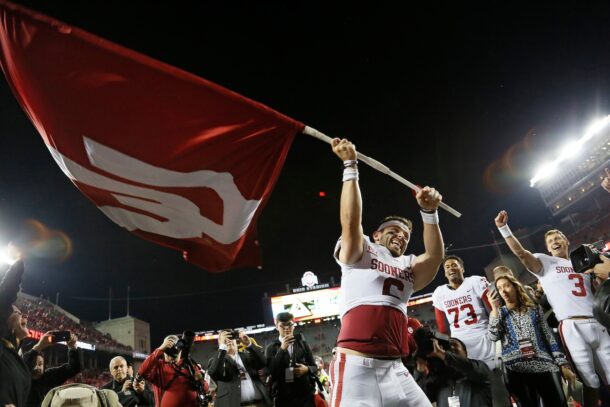
1 flaw that could end every SEC team’s run in the NCAA Tournament
By Adam Spencer
Published:
The SEC got a record eight teams into the NCAA Tournament, but all eight have tough draws for the first weekend of March Madness.
While at least a couple of teams could advance to the Sweet 16, every SEC squad has some fatal flaws to overcome if they want to keep their season going.
That, of course, can be said of all 64 teams that start play Thursday, but some flaws are bigger than others. From a lack of depth to some free-throw woes, the problems with each SEC team are sure to show at some point this month.
Here are the biggest flaws each SEC squad must overcome in order to advance in the NCAA tourney:
Alabama: Inconsistency behind Collin Sexton
The Crimson Tide have one of the best players in the country in freshman PG Collin Sexton, but his supporting cast has been inconsistent all year.
With leading rebounder Donta Hall battling a concussion, someone else is going to have to step up behind Sexton, as Hall likely won’t be 100 percent if he plays at all on Thursday night. Fellow freshman G John Petty, who is averaging 10.1 points per game is the logical choice, but he’s been highly inconsistent this year and may struggle against a balanced Virginia Tech team.
Arkansas: Free-throw shooting
The Razorbacks only made 67.8 percent of their free throws this year, and that won’t cut it in March.
In the NCAA Tournament, games are close more often than not, so being able to convert at the line down the stretch is crucial. Case in point: Butler, the Hogs’ first-round opponent, makes 77.1 percent of its free throws.
Auburn: Lack of depth
The Tigers limped to the finish line this season thanks to a season-ending injury to Anfernee McLemore and various nagging injuries to star G Bryce Brown.
However, they’ve had time to rest after losing their first game in the SEC Tournament. That could lead to them coming out of the gates strong in the NCAA tourney, but if they get to the Sweet 16 and beyond, their short bench could get exposed by a team like Kansas, Michigan State or Duke in the Midwest Region
Florida: Lack of size
The Gators don’t have a player taller than 6-9 as a part of their regular rotation, which could come back to bite them against a team like Purdue, which has two 7-footers.
Florida’s 779 defensive rebounds ranked 239th in the country, and allowing second and third opportunities to opponents is never a good thing to do during March Madness.
Kentucky: Youth
Coach John Calipari has mentioned it at least 10,000 times this year — the Wildcats are one of the youngest teams in the nation.
Yes, they are also one of the hottest teams in the country following their run to a fourth consecutive SEC Tournament title, but it’s always tough to tell how young players are going to respond in pressure-packed situations. Though, the Cats made strides in the SEC final, erasing a small deficit and holding off Tennessee in the final 4 minutes.
This isn’t to say the ‘Cats can’t make a deep run, but it’s worth wondering what will happen if they come up against a more experienced team like Virginia or North Carolina.
Missouri: No dynamic point guard
Everyone says dynamic guards are how you win the NCAA Tournament, and the Tigers have one in senior Kassius Robertson, who transferred to Mizzou from Canisius and took the SEC by storm.
However, he’s not a true point guard, and the Tigers don’t have many options in their backcourt. Jordan Geist is a solid player, but when you consider the teams that have a legitimate shot of winning the tournament (Villanova with Jalen Brunson, Kentucky with Shai Gilgeous-Alexander, North Carolina with Joel Berry and many others), they all have elite point guards.
Plus, with Cullen VanLeer out with an ACL injury, Terrence Phillips suspended from the team and Blake Harris having long since transferred, the Tigers have little to no depth behind Geist and Robertson.
Tennessee: Lack of tempo
The Vols prefer to play at a slower pace, which isn’t a bad thing at all. However, if they go down by double digits in the second half of a game, they’re going to find it difficult to score enough to come back.
Fortunately for coach Rick Barnes’ squad, the South Region has teams like Cincinnati and Virginia that also prefer to play at a slower pace. However, Kentucky looms as the No. 5 seed, and those three games between the Vols and Wildcats showed that the team that controls the pace will win that battle.
Texas A&M: No 3-point threats
In today’s version of basketball — both at the NBA and college levels — the 3-point shot is king. However, the Aggies don’t shoot it particularly well from long range, making only 32.7 percent of their 3s (good for only 295th in the country).
If Admon Gilder and DJ Hogg can’t knock down some 3s early against teams like Providence and North Carolina, the Aggies could be heading home before the first weekend of the tourney is over.
Adam is a daily fantasy sports (DFS) and sports betting expert. A 2012 graduate of the University of Missouri, Adam now covers all 16 SEC football teams. He is the director of DFS, evergreen and newsletter content across all Saturday Football brands.







